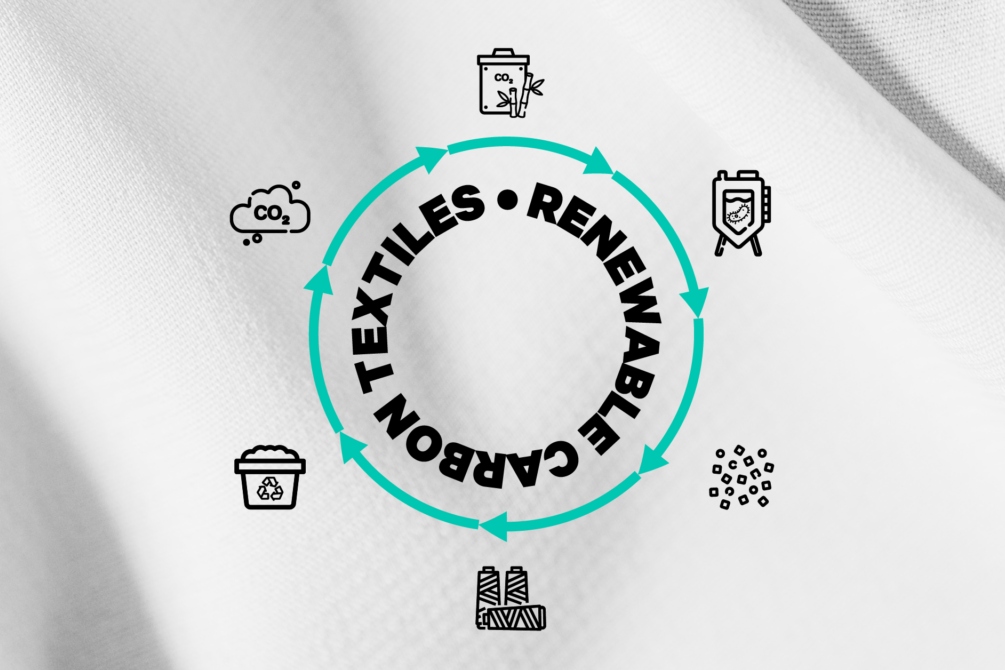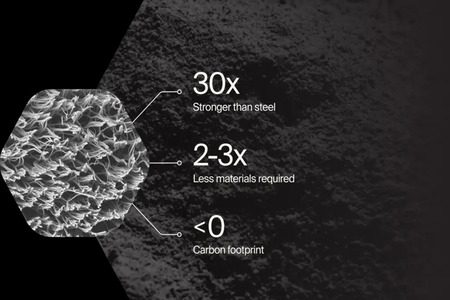
Fashion for Good launches new project to scale biosynthetic fibres
YarnsandFibers News Bureau 2021-06-11 09:46:44 – NetherlandsAmsterdam-based global sustainability organization, Fashion for Good has initiated a new project- the Renewable Carbon Textiles Project, that will bring explore the viability of commercializing promising PHA (Polyhydroxyalkanoates) fibers.
Polyhydroxyalkanoates or PHA polymer fibres are biosynthetic alternatives to fossil fuel-based materials, with the potential to reduce carbon emissions in the fashion supply chain.
Fashion for Good, with catalytic funding from the Laudes Foundation, is leading the Renewable Carbon Textiles Project in collaboration with partner brands Bestseller, Norrna, PVH Corp., and Gore, who are testing and developing output materials as well as providing technical expertise and industry insights.
This will allow for the assessment of PHA polymer compatibility, the acceleration of fibre research and manufacturing, and the determination of scalability in the conventional supply chain. To ensure circularity, the fibres' end-of-use paths will be examined using third-party degradation and recyclability tests.
Full Cycle Bioplastics, Bio Craft Innovation (previously Biomize), and Newlight Technologies are among the innovators who will share their ideas, revealing how to expand the sector in the future.
Managing director of Fashion for Good, Katrin Ley, said there is an urgent need to develop alternatives to find replacements for the fashion industry's predominantly fossil-based fibres, such as biosynthetic made from renewable sources. PHA polymers are an intriguing, yet difficult, answer for lowering carbon emissions in the fashion sector, and this initiative hopes to drive further research in this area so that they may be scaled up.
Under the umbrella of the Renewable Carbon Framework initiated by the nova-Institute, biosynthetic generated from renewable sources, such as agricultural waste, is a way to minimise plastic manufacturing and, ultimately, a brand's overall carbon footprint. PHA polymers, in particular, offer a bio-based, marine, and soil biodegradable alternative to fossil-fuel generated polyester fibres.
Working with the Nonwovens Innovation and Research Institute (NIRI) in Leeds, UK, to undertake melt-spinning experiments, the project will focus on validating the technical feasibility of the output. This enables for a comparison analysis, which can reveal important insights into how to effectively support and bring these technologies to scale.
Organic Waste Systems (OWS) of Ghent, Belgium, will undertake a range of degradation testing in addition to the technical feasibility assessment. In mid-2022, OWS, which is a leader in biodegradability, compostability, and ecotoxicity testing, will conduct experiments in marine, soil, freshwater, and landfill settings to determine the biochemical characteristics of the fibres and if they break down in these environments.
Senior Programme Manager of Laudes Foundation, Lakshmi Poti, said the Laudes Foundation is excited to support this cooperation as a first step toward eliminating the fashion industry's reliance on oil-based synthetics. This programme is essential for unleashing the future potential of renewable fibre sources and establishing their feasibility to the industry.
PHAs are made utilising a fermentation method that uses a variety of renewable carbon-based feedstocks. The emphasis is on employing feedstocks that do not compete directly with food and feed crops, diverting biological feedstocks from trash, and exploiting waste gases in the fibre manufacturing process.
Full Cycle Bioplastics makes PHA biopolymers from inedible food waste, whereas Newlight employs carbon capture technology to convert carbon from greenhouse emissions. Bio craft Innovation uses bamboo biomass to create a mixed PHA composite. Each of these innovators will offer the material for fibre manufacture, and they will demonstrate that their product meets industry standards in terms of both quality and quantity required for scalable manufacturing.
The inventors will begin designing their own PHA formulations in the following months, which will be transported to NIRI for melt spinning experiments. Following the completion of the trials, environmental degradation testing will begin.
Market Intelligence
Ask for free sample Report

experience
Customer Base
dedicated team
Countries Served Worldwide









